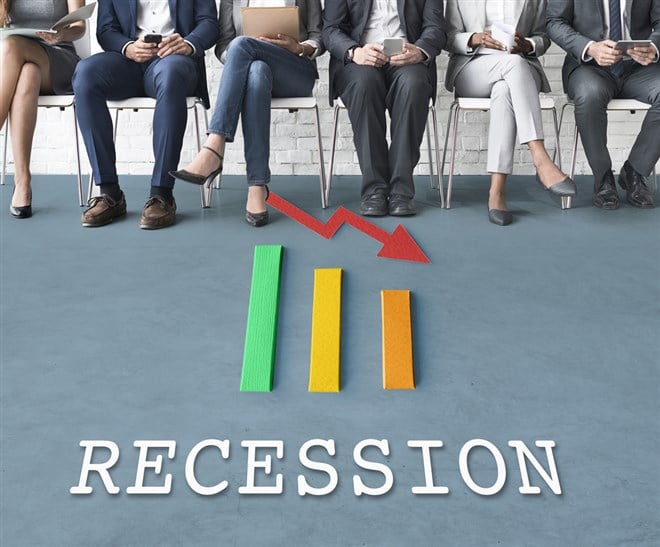 2008 was the last time there was a significant recession in the United States. And now with two consecutive quarters of declines in GDP and inflation continuing to run hot, investors may be worried about how their portfolios will hold up if the economy were to fall into a recession. The following stocks outperformed the market in 2008, as the housing crisis took a toll on the economy, and might be worth looking at again this time around.
2008 was the last time there was a significant recession in the United States. And now with two consecutive quarters of declines in GDP and inflation continuing to run hot, investors may be worried about how their portfolios will hold up if the economy were to fall into a recession. The following stocks outperformed the market in 2008, as the housing crisis took a toll on the economy, and might be worth looking at again this time around.AutoZone (NYSE: AZO)
AutoZone’s stock was up 22% in 2008 as the rest of the market crumbled. The company deals with car and truck parts and is an essential part of the economy. The stock is currently up 30% over the last year, with strong demand coming in from the auto-parts after-market. Vehicles in the United States are aging, and hit their highest age yet, at 12.2 years. Many buyers are turning to second-hand vehicles instead of buying new cars, and the increase in demand sent the price of used cars to record highs during the previous months, (although since then, prices have declined). Regardless, the after-parts market continues to benefit from this trend of strong demand as both volumes and prices continue to provide a tailwind to companies such as AutoZone. AutoZone, in turn, also continues to benefit and has become a favorite of many investors looking to avoid recessionary headwinds.The stock currently trades at a price-to-earnings ratio of 19x and has a beta of 0.83, and a PEG ratio of 1.17, all of which are positives for the stock.
Ross Stores (NASDAQ: ROST)
Ross Stores is another stock that continued to outperform during the 2008 recession, the stock was up 10% as the discount department store benefited from an increase in demand for its products. The stock trades at a price-to-earnings of 18x and has a beta of 0.99, which makes it less volatile than the market. The dividend for the company is slightly low at 1.5%, which may not impress investors, but management may increase dividends as the economy re-adjusts and more people start to buy clothing from discount chains.But, the stock is down over 32% over the last one year. Some of this can be attributed to the lockdown economy, where consumers preferred clothing items that were more ‘premium’. Consumers also pulled back on spending on discretionary items, as lockdowns increased savings. But with the economy slowing down once again, Ross Stores should see volumes pick up. Furthermore, consumer spending is increasingly slowing down as excess savings from the previous years start to deplete, and consumers may look to more reasonably priced alternatives.
Lowe’s Companies (NYSE: LOW)
Lowe’s is a home improvement store based out of Mooresville, North Carolina. It’s the second-largest home improvement and hardware store in both the United States and globally. Lowe’s first quarter was affected by a cooler-than-expected spring, and the base effect from lockdowns also weighed on sales. The company should get back on track to growth in the coming quarters, but weakness in consumer sentiment continues to remain an issue.The home improvement industry continues to hold up despite consumers pulling back on spending. On average, the industry tends to hold up well during times of recession, despite a fall in discretionary spending on projects such as remodeling. On the other hand, spending on repairs, etc. tends to fare far better. Lowe's revenue should continue to grow at an acceptable pace with the home improvement industry expected to grow anywhere from 3.5-4.5% over the next 5 years, as more and more people look to remodel and spend on their homes. This is largely due to the fact that homes on average are older than ever and will require maintenance and refurbishment.
Lowe’s stock is currently down over 25% from its 52-week high, which has brought valuations down to a level that is more in line with its intrinsic value. The stock currently trades at a 15x price-to-earnings and is expected to bring in $98 billion in revenue in 2022, up 2% y-o-y. It also has a dividend yield of 2%, which might increase, as cash flow improves during the next couple of quarters.






